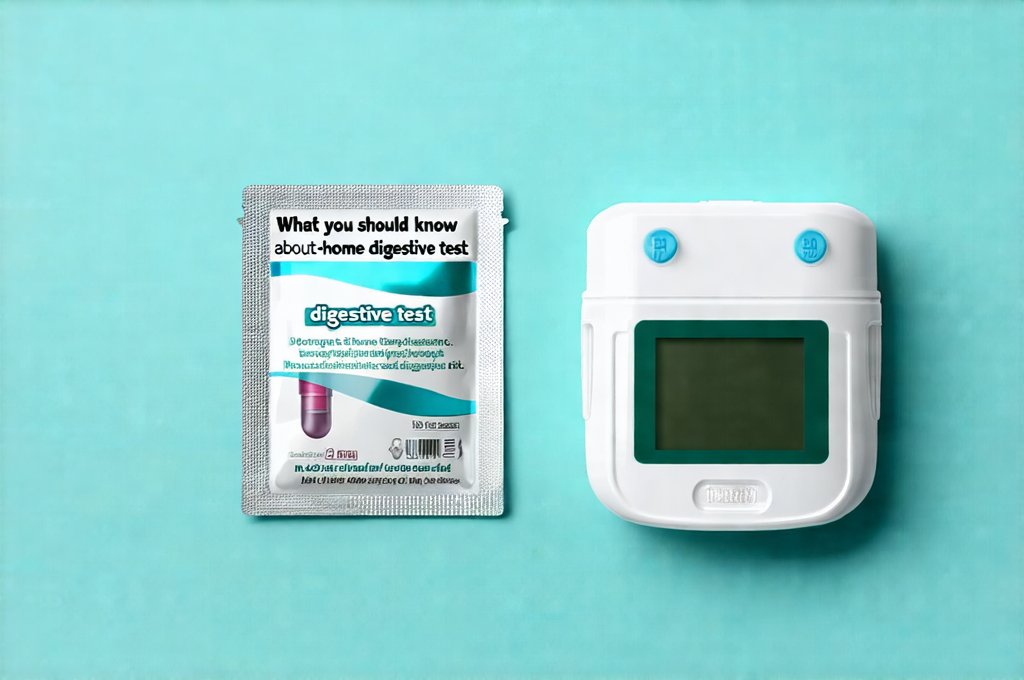Our digestive systems are often taken for granted until something goes wrong. Bloating, gas, constipation, diarrhea – these aren’t just uncomfortable; they can significantly impact our quality of life. Increasingly, people are seeking answers beyond traditional doctor’s visits, leading to a surge in the popularity of at-home digestive test kits. These kits promise insights into gut health, potential sensitivities, and imbalances that might be causing discomfort or affecting overall well-being. However, navigating this growing market can be confusing. Understanding what these tests actually measure, their limitations, and how to interpret results is crucial before investing time and money.
The appeal of at-home testing lies in its convenience and accessibility. No lengthy wait times for appointments, no uncomfortable clinical procedures – simply collect a sample (usually stool, but sometimes saliva or breath) and mail it off to a lab. The results arrive directly to you, often with personalized recommendations. While this ease is attractive, it’s essential to remember that these tests aren’t replacements for professional medical diagnosis or treatment. They offer information, not definitive answers, and should be viewed as one piece of the puzzle in understanding your digestive health. It’s vital to discuss any concerns and test results with a healthcare provider. If you experience ongoing issues, consider what gerd patients should know about colonoscopies as part of a comprehensive checkup.
Understanding What These Tests Measure
At-home digestive tests vary considerably in what they assess. Some focus on basic stool analysis – looking for signs of infection, inflammation, or malabsorption. Others delve into the gut microbiome, attempting to identify the types and quantities of bacteria living in your intestines. More advanced kits may analyze enzymes involved in digestion, markers of intestinal permeability (often called “leaky gut”), or food sensitivity reactions. It’s important to know precisely what a test is designed to measure before purchasing it.
- Tests analyzing stool for occult blood can help screen for potential issues like polyps or colon cancer, though they aren’t substitutes for regular colonoscopies.
- Microbiome tests typically use DNA sequencing to identify the bacteria present in your gut. However, the interpretation of these results is complex; a “good” microbiome isn’t necessarily defined by specific bacterial species but rather by diversity and balance.
- Food sensitivity tests are particularly controversial (more on that later). Many rely on IgG antibody testing, which doesn’t necessarily indicate true allergies or intolerances, but simply shows exposure to certain foods.
The technology behind these tests is evolving rapidly. Newer techniques promise more accurate and comprehensive results. However, it’s essential to be critical of marketing claims and understand the limitations inherent in collecting samples at home compared to clinical settings where control is tighter. A major limitation is that stool sampling can be inconsistent; a single sample may not accurately represent your entire gut microbiome due to its dynamic nature. Staying hydrated is also key, so learn about gerd and dehydration as it relates to digestive health.
The Controversy Around Food Sensitivity Testing
Food sensitivity testing, particularly those marketed for at-home use, has drawn significant criticism from the scientific community. Many tests claim to identify foods you should eliminate based on IgG antibody levels – indicating an immune response. However, IgG antibodies are a normal part of food tolerance, signaling that your body recognizes a food. Their presence doesn’t necessarily mean you’re sensitive or intolerant; it simply means you’ve been exposed to that food before. Confusingly, high IgG levels can even indicate tolerance rather than reactivity.
This misinterpretation can lead people to unnecessarily restrict their diets, potentially resulting in nutritional deficiencies and anxiety around eating. True food allergies (IgE-mediated reactions) are relatively rare and typically cause immediate, noticeable symptoms. Food intolerances (like lactose intolerance) often have clear diagnostic tests or are identified through elimination diets guided by a healthcare professional.
A more reliable approach to identifying food sensitivities is an elimination diet under the guidance of a registered dietitian or doctor. This involves removing suspected trigger foods for a period and then reintroducing them one at a time, carefully monitoring for symptoms. Avoid relying solely on at-home food sensitivity tests without further professional evaluation. It’s crucial to remember that correlation doesn’t equal causation. A positive test result doesn’t automatically mean a food is causing your symptoms. Before making major dietary changes, review what to avoid on grocery runs if you have digestive issues.
Interpreting Your Results and Next Steps
Once you receive results from an at-home digestive test, resist the urge to self-diagnose or dramatically alter your diet without consulting with a healthcare provider. The information provided should be viewed as a starting point for conversation, not a definitive conclusion. Understand that many tests provide relative measurements – comparing your results to population averages – which can be misleading if you don’t consider individual factors.
If your test reveals abnormalities or concerns (e.g., signs of infection, low microbiome diversity), schedule an appointment with your doctor. They can evaluate the results in context with your medical history, symptoms, and other relevant tests. Don’t hesitate to ask questions about the methodology used by the testing company and the scientific evidence supporting their claims. A qualified healthcare professional can help you determine if further investigation is needed – such as a colonoscopy, endoscopy, or allergy/intolerance testing – to reach an accurate diagnosis. If experiencing persistent throat issues, it’s also wise to understand frequent throat clearing and its connection to digestive health.
Choosing a Reputable Testing Company
With so many at-home digestive test kits available, selecting a reputable company is paramount. Look for companies that:
- Employ validated methodologies and have published research supporting their tests.
- Use CLIA-certified (Clinical Laboratory Improvement Amendments) or CAP-accredited (College of American Pathologists) laboratories. These certifications ensure quality control and accuracy in lab testing.
- Offer clear, transparent reporting of results with understandable explanations.
- Have a strong commitment to data privacy and security.
- Provide access to qualified healthcare professionals for interpretation of results.
Avoid companies that make exaggerated claims or promise miracle cures. Be wary of tests marketed as “definitive” or “highly accurate” without supporting scientific evidence. Read reviews from independent sources (not just testimonials on the company’s website) to get a balanced perspective. Consider the cost of the test and whether it aligns with your needs and budget. Remember, a higher price doesn’t necessarily equate to better quality. Understanding nighttime burn can also help you make informed choices about your health.
Beyond Testing: Lifestyle Factors for Digestive Health
While at-home digestive tests can provide valuable insights, they shouldn’t overshadow the importance of foundational lifestyle factors for gut health. A balanced diet rich in fiber, fruits, vegetables, and fermented foods supports a healthy microbiome. Regular exercise promotes motility and reduces stress – both crucial for digestion. Adequate hydration is also essential.
Managing stress through techniques like mindfulness or yoga can have a significant impact on digestive function. Chronic stress disrupts the gut-brain axis, leading to symptoms like bloating and irritable bowel syndrome. Finally, listen to your body and pay attention to how different foods affect you. Keeping a food diary can help identify potential triggers and guide dietary adjustments. Proactive lifestyle changes often yield more substantial benefits than relying solely on test results. Focusing on holistic well-being is the key to long-term digestive health. Consider if itchy throat symptoms are related to your digestion and seek professional advice.


















